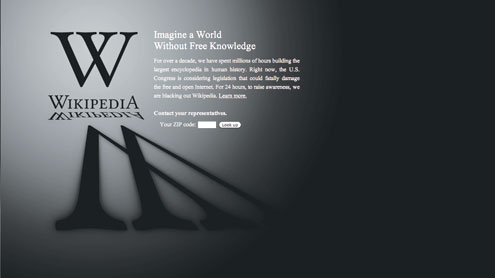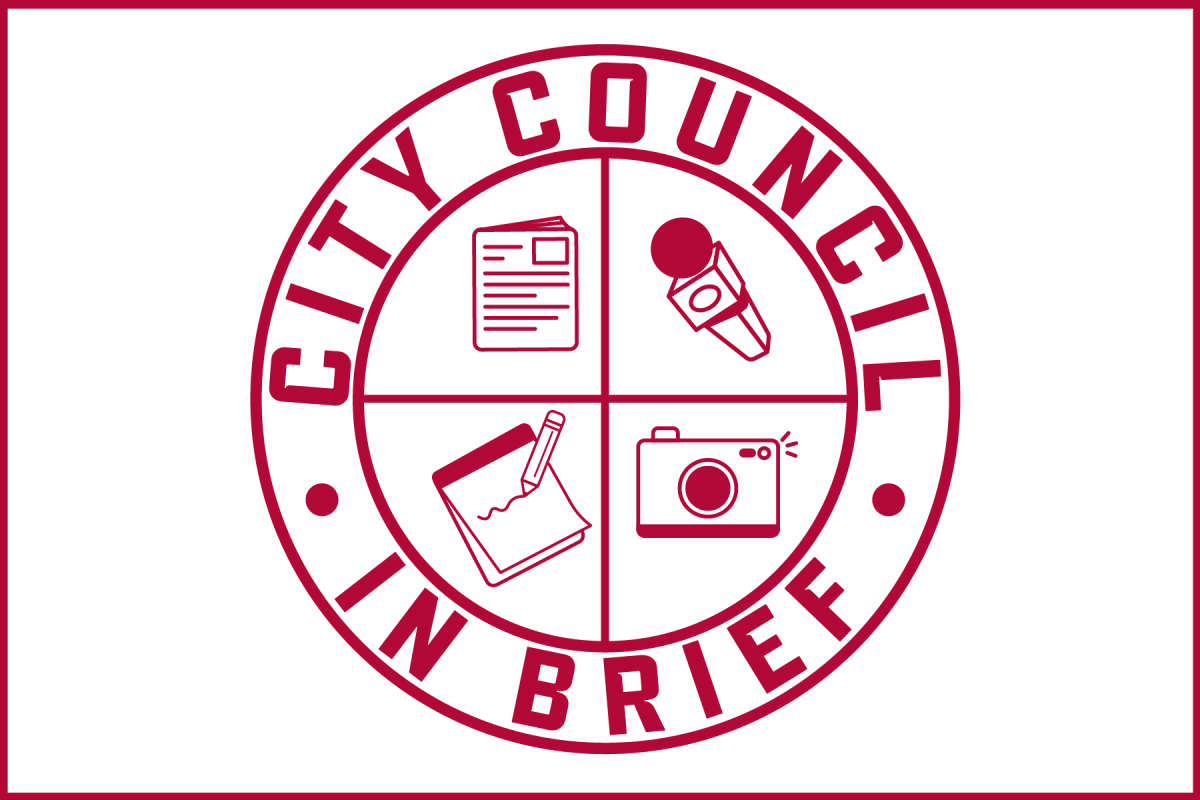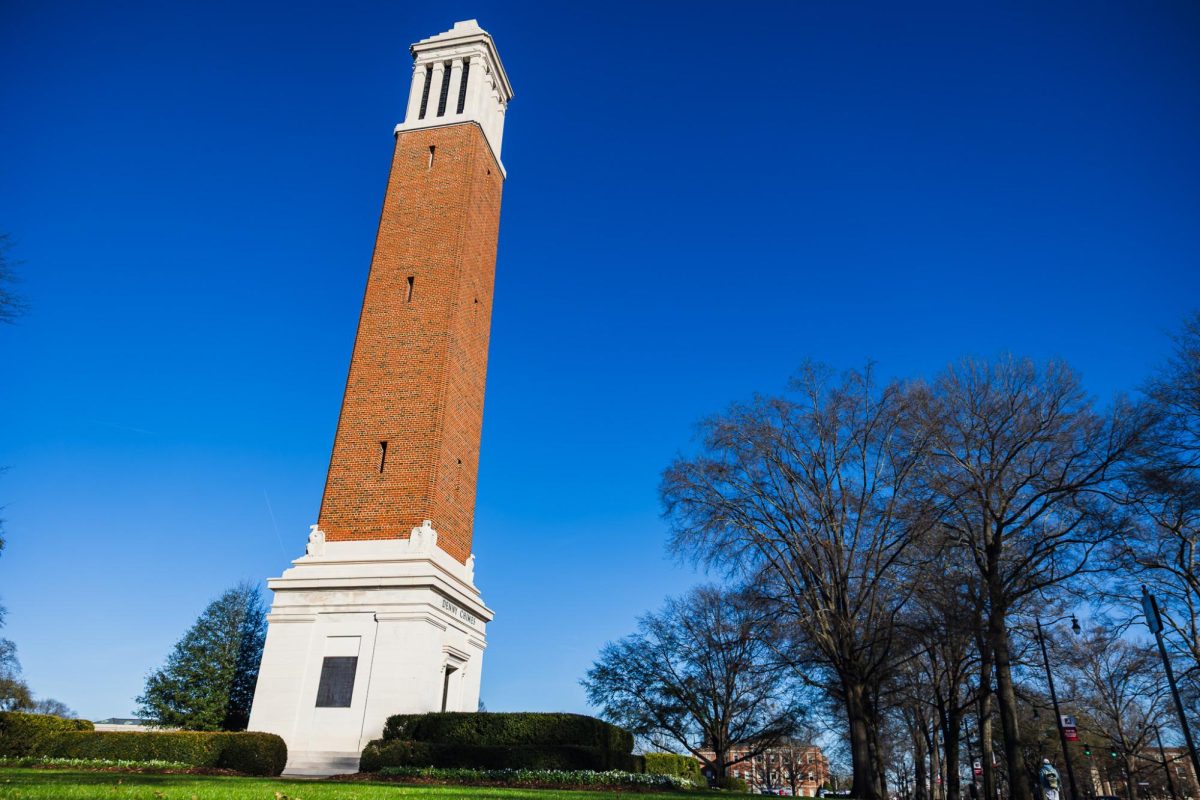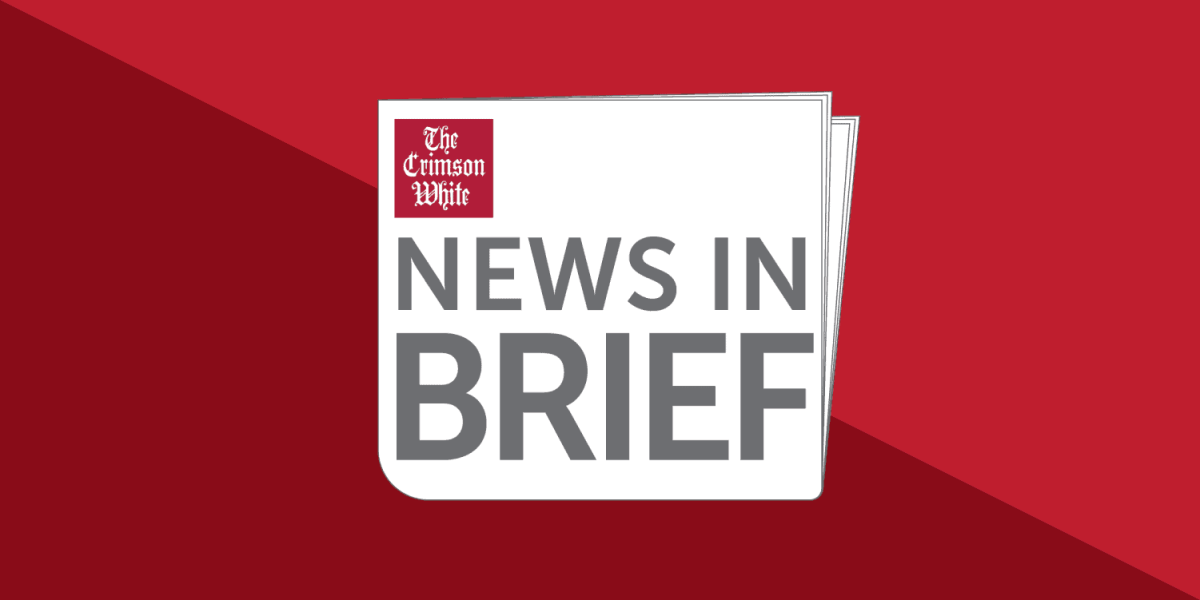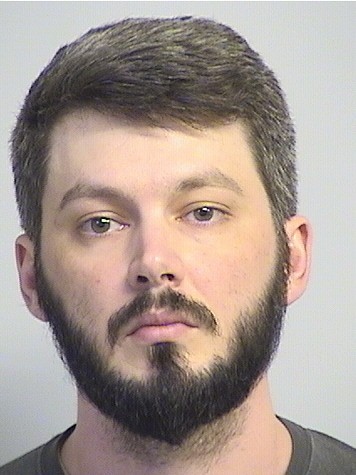 As a form of protest against the Stop Online Piracy Act in the U.S. House of Representatives and the Protect IP Act in the U.S. Senate, Wikipedia, along with other websites, including Google, Reddit and WordPress, staged a 24-hour “blackout” on their websites on Wednesday.
As a form of protest against the Stop Online Piracy Act in the U.S. House of Representatives and the Protect IP Act in the U.S. Senate, Wikipedia, along with other websites, including Google, Reddit and WordPress, staged a 24-hour “blackout” on their websites on Wednesday.
Jimmy Wales, co-founder of Wikipedia, said in an interview with CNN that the Wikipedia community – that is, the people who edit the website – voted in favor of protesting the law in early December.
“Within our community, we’re very strong defenders of copyright,” Wales said. “We have strict rules about obeying copyright, and we don’t link to materials that we know to be copyright infringement. That isn’t really the issue. The other side will try to paint this as anybody who’s opposed to this must be making money off of piracy or be in favor of piracy.
“That isn’t true. The issue here is that this law is very badly written, very broadly overreaching and, in at least the Senate version, would include the creation of a DNS (domain name system) blocking regime that’s technically identical to the one that’s used by China. I don’t think that’s the right way the U.S. needs to go in taking a leadership role on the Internet.”
Matthew D. Bunker, a mass communication law and communication professor of journalism at the University of Alabama, said SOPA potentially violates the First Amendment in several ways.
“It is a very broad law that allows the government to impose a death penalty on websites that may have some content that is infringing on copyright laws,” Bunker said. “SOPA seems to impose the prior restraint on speech before a court considers whether it is justified. It allows the attorney general to act without a hearing. So, a court does not have a chance to consider whether a website should be shut down.”
This was the first time the English Wikipedia has ever staged this type of public protest, according to a statement from Sue Gardner, Wikimedia Foundation Executive Director, on the website.
Gardner said that her hope is for people to understand that the blackout is for the website’s readers.
“We support everyone’s right to freedom of thought and freedom of expression,” Gardner said in the statement. “We think everyone should have access to educational material on a wide range of subjects, even if they can’t pay for it. We believe in a free and open Internet where information can be shared without impediment. We believe that new proposed laws like SOPA and PIPA, and other similar laws under discussion inside and outside the U.S., don’t advance the interests of the general public.”
Tiara Dees, a senior visual journalism and music double major, said that she thinks SOPA will hinder much of the creative freedom that people have experienced on the Internet, and the blackout has raised a lot of public awareness about the act.
“I don’t feel like the Wikipedia blackout has prevented me from doing some of my schoolwork,” Dees said, “but I have seen some of my friends post on Facebook about how this blackout is affecting their ability to do research for school.”
Charles McCullough, a senior mechanical engineering major, said until government officials are out of lobbyists’ collective pocket, harmful bills like this will continue to be authored.
“Reform is needed to prevent the undue influence of finance, both during elections and in the day-to-day operations of Congress,” McCullough said. “The music and video industries are so intent on protecting their rights that they are willing to trample on everybody else’s. Their pursuit of a few more dollars will cost the economy in lost productivity and innovation and deprive site hosts of due process in legal proceedings, leaving an end result of corporations abusing power to take down content they don’t approve of.”



